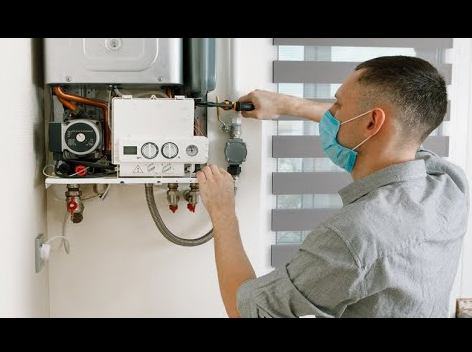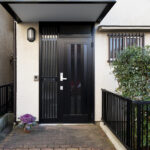Carbon monoxide (CO) is a silent killer, an invisible and odourless gas that can pose serious risks to households. One of the most common sources of carbon monoxide in homes is faulty or improperly maintained boilers. If you’re using a boiler for heating, it’s crucial to ensure your system is safe and operating efficiently. In this guide, we’ll explore how carbon monoxide leaks occur, the dangers they pose, and how you can safeguard your home with proper maintenance and professional boiler installation services.
Understanding Carbon Monoxide and Its Dangers
Carbon monoxide is produced when fuels like gas, oil, wood, or coal burn incompletely. Normally, a well-functioning boiler vents CO safely outside your home. However, if the system is faulty or improperly installed, carbon monoxide can leak into your living space, creating a life-threatening hazard.
Symptoms of Carbon Monoxide Poisoning
Since CO is invisible and odourless, many people don’t realize they’ve been exposed until symptoms become severe. Early warning signs of carbon monoxide poisoning include:
- Headaches
- Dizziness
- Nausea
- Shortness of breath
- Confusion
- Chest pain
Severe exposure can lead to unconsciousness or even death. This is why taking preventive measures is essential.
How Boilers Can Cause Carbon Monoxide Leaks
Boilers are generally safe when installed and maintained properly, but several factors can lead to carbon monoxide leaks:
1. Poor Installation
Improper boiler installation increases the risk of carbon monoxide leaks. This is why hiring professional boiler installation services is crucial. Certified professionals ensure your boiler is correctly fitted and vented to prevent CO buildup.
2. Lack of Maintenance
A boiler requires regular maintenance to function safely. Over time, components can wear out, vents can become blocked, and burners may fail to operate efficiently, increasing the risk of CO emissions.
3. Blocked or Damaged Flues
The flue is responsible for venting CO safely outside. If it becomes blocked by debris, ice, or bird nests, the gas can back up into your home. Cracked or damaged flue pipes can also leak carbon monoxide.
4. Cracked Heat Exchanger
The heat exchanger inside your boiler is a crucial component that keeps dangerous gases separate from the air circulating in your home. If it develops cracks, carbon monoxide can seep into your living spaces.
5. Malfunctioning Burners
A burner that fails to ignite properly or burns fuel inefficiently can produce excessive CO. This is often due to dirt buildup, gas pressure issues, or a faulty ignition system.
How to Prevent Carbon Monoxide Leaks from Your Boiler
Now that you know the dangers of CO leaks, here are key steps you can take to protect your home and loved ones:
1. Schedule Regular Boiler Maintenance
Routine servicing ensures your boiler operates safely and efficiently. A professional technician will inspect key components, clean parts, and identify potential risks before they become serious problems. Aim for at least one professional inspection per year.
2. Install Carbon Monoxide Detectors
Every home with a boiler should have CO detectors installed. Place them near bedrooms, the boiler room, and any living areas. Check the batteries regularly and replace the detectors every 5-7 years.
3. Choose a Professional Boiler Installation Service
If you’re installing a new boiler or replacing an old one, always hire a qualified professional. Expert boiler installation services ensure that the system is fitted correctly, vented properly, and compliant with safety regulations.
4. Keep Vents and Flues Clear
Inspect your boiler’s flue regularly to ensure it’s not blocked by debris, bird nests, or ice. Keeping vents clear allows harmful gases to escape safely.
5. Be Aware of Warning Signs
If you notice black soot marks around your boiler, a pilot light that frequently goes out, or increased condensation in the room, these could be signs of CO leakage. Shut off the boiler and call a professional immediately.
6. Avoid DIY Repairs
Never attempt to fix a boiler yourself unless you are a certified professional. Incorrect repairs can make the system unsafe and increase the risk of carbon monoxide leaks.
The Importance of Professional Boiler Installation Services
When installing a new boiler, safety should be your top priority. Professional boiler installation services offer:
- Expert assessment of your home’s heating needs
- Safe and efficient installation
- Compliance with safety codes and regulations
- Warranty protection and future maintenance options
By choosing an experienced installer, you reduce the risk of CO leaks and ensure that your heating system operates at peak efficiency.
Emergency Steps If You Suspect a Carbon Monoxide Leak
If you suspect carbon monoxide is leaking from your boiler, follow these steps immediately:
- Turn off the boiler – Shut down the heating system to stop CO production.
- Open windows and doors – Ventilate your home to allow fresh air in and CO to escape.
- Evacuate the premises – Leave the house immediately and move to fresh air.
- Call emergency services – Contact your local emergency number or gas company to report the issue.
- Seek medical attention – If you experience symptoms of CO poisoning, get checked by a healthcare professional.
- Call a professional technician – Have your boiler inspected and repaired before using it again.
FAQs
1. How often should I get my boiler serviced to prevent carbon monoxide leaks?
You should schedule a professional boiler maintenance service at least once a year. Regular inspections help detect and fix potential CO leak risks before they become hazardous.
2. Can I install a carbon monoxide detector near my boiler?
Yes, but it’s best to place CO detectors near sleeping areas and at least 5 feet away from the boiler itself to prevent false alarms. Having multiple detectors throughout your home provides better safety coverage.
3. What should I do if my carbon monoxide detector goes off?
If your CO detector alerts you, turn off all fuel-burning appliances, open windows for ventilation, and leave your home immediately. Call emergency services and have a professional inspect your boiler before using it again.
Conclusion
Carbon monoxide is a serious threat, but with proper boiler maintenance, professional boiler installation services, and CO detectors, you can keep your home safe. Regular servicing, staying vigilant for warning signs, and seeking professional help when needed can prevent CO-related accidents. Don’t take risks with your family’s safety—ensure your boiler is installed and maintained by experts to enjoy safe and efficient heating year-round.


